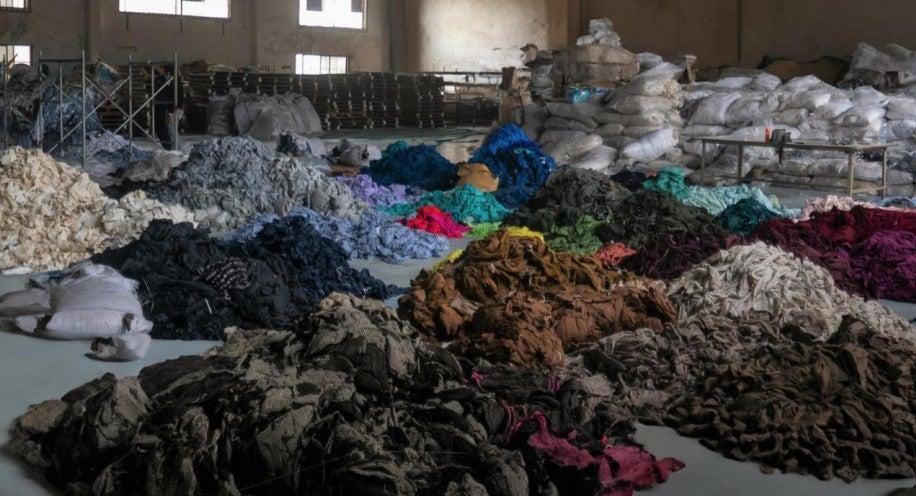Interloop, Reverse Resources and the NTU hope the initiative will improve the quality and commercial viability of textile-to-textile recycled products while ensuring transparency and enabling digitally verifiable traceability in the recycling process.
Interloop will work with Reverse Resources to bring in a custom waste-mapping programme and drive the company’s waste traceability forward using the digitisation of inventory in the waste supply chain from source to recycling.
Interloop chief marketing officer Faryal Sadiq said: "We're thrilled to be part of the SMEP founded programme, advancing transparency and collaboration in Pakistan's textile recycling sphere".
She added: "At Interloop, we leverage waste — both industrial and agricultural — as a valuable resource, effectively reducing our environmental impact. By
partnering with allies and industry experts like Reverse Resources, we're eager to
establish waste traceability, map waste handlers, and track each recycling phase,
shaping a more resilient future together."
Interloop explained the project will also facilitate the establishment of KPIs for scalable circularity, however it is expected to face both challenges and opportunities.
Challenges and opportunities for Pakistan textile recycling project
It noted that despite the growth of Pakistan’s textile recycling industry, a significant untapped market potential remains. By scaling recycling initiatives, the company hopes it can unlock economic and environmental benefits.
Plus, high-end recyclers actively seek feedstock, however a substantial amount of high-quality textile waste still ends up in low-value applications. This means brands lack visibility into the fate of their discarded textiles.
Finally, the informal waste handling sector is a critical link between textile waste supply and recycling destinations, however it faces challenges. Interloop explained leakage within this sector poses a significant obstacle in supply chain compliance and transparent textile to textile recycling.
The Interloop and Reverse Resources project is funded by the Sustainable Manufacturing and Environmental Pollution (SMEP) programme, established by the Foreign, Commonwealth and Development Office (FCDO) and is implemented in partnership with the United Nations Conference on Trade and Development (UNCTAD). It is also supported by Global Fashion Agenda’s Circular Fashion Partnership and Fashion For Good.
Last month US fashion brand Guess adopted Interloop's low-impact fibres in its new denim collection.









